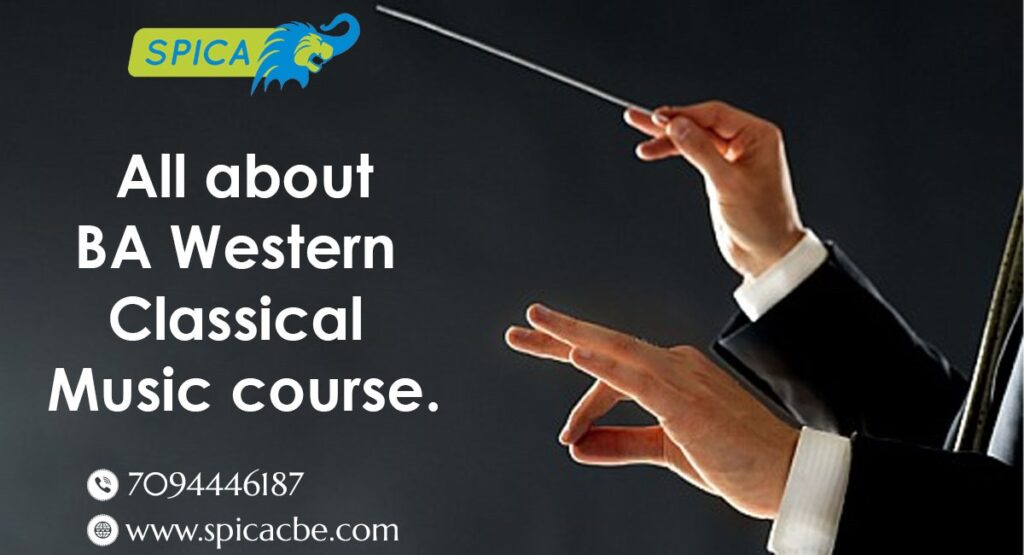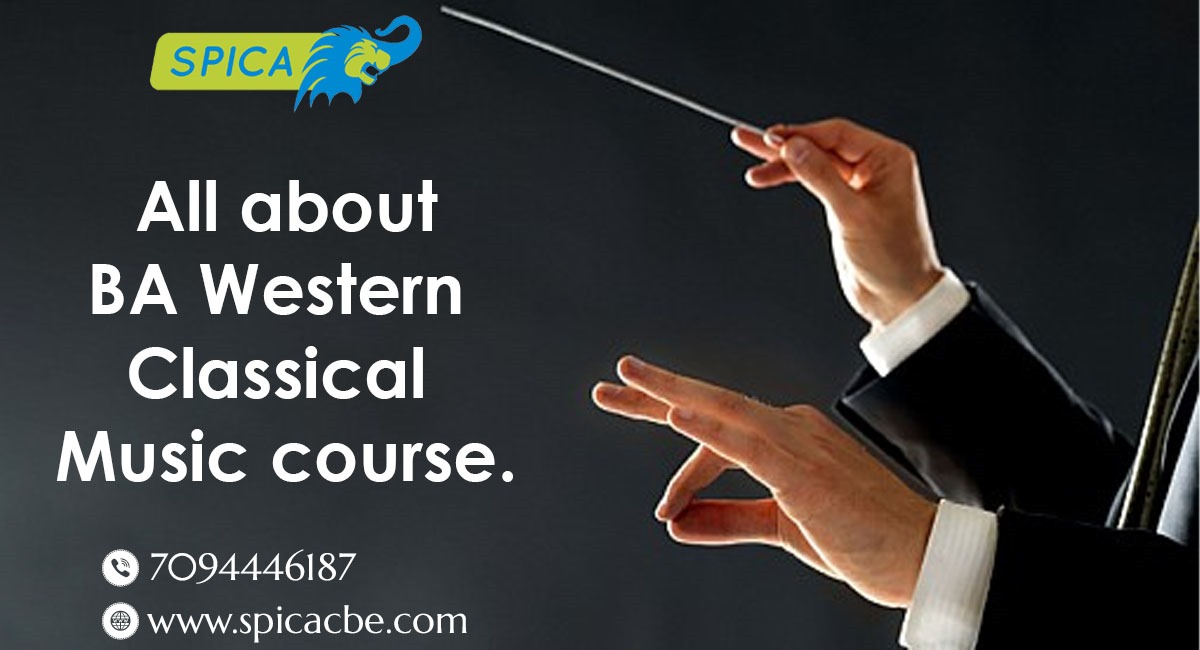
The BA Western Classical Music course is an undergraduate program designed to provide students with a comprehensive understanding of Western classical music, including its history, theory, and performance.
The BA Western Classical Music course typically has a duration of three years, divided into six semesters.
The general eligibility criteria for admission to a BA Western Classical Music course include:
Successful completion of 10th, +2 or equivalent from a recognized board.
Course Structure and Subjects:
The curriculum of the B.A. Western Classical Music degree includes a combination of theoretical and practical components. While specific subjects may vary, common topics covered are:
- Western Music History: Comprehensive study of the history of Western classical music, including different periods, styles, and influential composers.
- Music Theory: Fundamentals of music theory specific to Western classical music, including notation, scales, chords, and harmonic analysis.
- Western Classical Music Literature: In-depth exploration of significant compositions, genres, and forms in Western classical music.
- Chamber Music: Ensemble training in small groups, focusing on collaborative performance and interpretation.
- Music Analysis: Analyzing the structure, harmony, and form of Western classical compositions.
- Opera Studies: Study of operatic works, their historical context, and the integration of music, drama, and staging.
- Music Technology: Introduction to the use of technology in music production, notation software, and digital recording.
- Musicology: Research and critical analysis of Western classical music, including writing essays and research papers.
- Music Education: Understanding the principles of music education and methodologies for teaching Western classical music.
Career Opportunities:
Graduates with a B.A. Western Classical Music degree can explore various career paths, including:
- Music Educator: Teach Western classical music in schools, music academies, or private lessons.
- Musicologist: Engage in research, writing, and analysis of Western classical music.
- Music Librarian/Archivist: Work in libraries or archives, managing and preserving musical collections.
- Arts Administration: Contribute to arts administration by managing cultural events, festivals, or music institutions.
- Music Technology Specialist: Focus on the technical aspects of music, including working with digital audio software and music technology.
- Music Critic/Journalist: Write reviews, articles, or features about Western classical music for newspapers, magazines, or online platforms.
- Music Retail/Marketing: Work in music retail, marketing, or sales, promoting classical music recordings, instruments, or related products.
- Cultural Entrepreneurship: Establish a music-related business, such as a music school, recording studio, or event management company.
The B.A. Western Classical Music degree provides a foundation for students to specialize in various aspects of Western classical music, whether in performance, education, research, or related fields. The dynamic nature of the classical music world offers a range of opportunities for graduates with a deep understanding and appreciation of Western classical music. Specific details may vary based on the university or institution offering the program.
Here at SPICA, you can find all types of UG, PG, Diploma, PG Diploma, and certificate programs in the distance and online education modes. Enrolling in distance or online education courses via the SPICA, you can get UGC-approved degree certificates along with A+ grade mark sheets from your enrolled University. Also, we provide the students with exclusive online education courses, live sessions, and other educational benefits.
For More Details:
Contact: 7094446187
Mail: info@spicacbe.com
Visit: www.spicacbe.com



